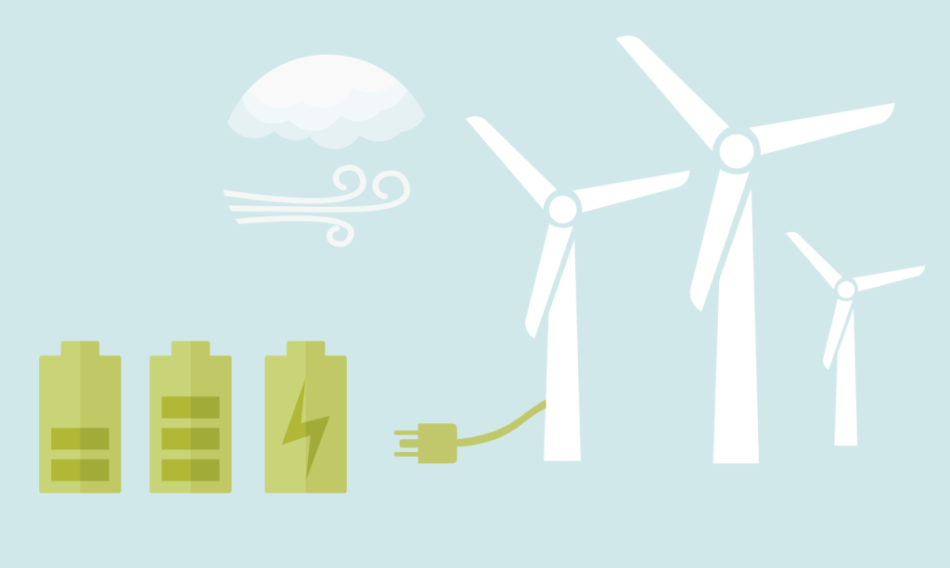Feb 8 2019
According to a study conducted by the University of Michigan, perceptions of local residents play an important role in how they feel about wind energy.
 (Image credit: University of Michigan)
(Image credit: University of Michigan)
When people believe that the planning process for constructing building wind turbines is fair and transparent, their perceptions of the energy source, which is often a debatable issue, continue to be steady or even improve with time.
As a matter of fact, the transparency with which the planning process is executed is more significant in molding the perceptions of local residents toward wind energy than getting a payment, stated the researchers.
In a similar way, if residents feel that their opinions are not heard, then their perceptions of wind turbines not only become less positive but also erode over time, which has important implications.
This finding shows that residents want to be heard. It has lessons not only for local government officials who hold public hearings to approve or deny the project, but also for wind energy companies that are developing these projects.
Sarah Mills, Study Lead Author, Senior Project Manager, and Researcher, Center for Local, State, and Urban Policy, Gerald R. Ford School of Public Policy, University of Michigan.
Hence, to gauge the residents’ perceptions about the effects of wind energy, a 2014 survey was sent to 1,000 local people across nine Michigan-based townships that have wind turbines. In 2016, the same respondents were again surveyed and the same kinds of questions were posed to them to see if their perceptions had changed in these two years.
Mills and workers discovered that, on average, residents’ attitudes remained more or less the same. The majority of residents agreed that wind turbines generate jobs and bring revenue to landowners, whereas most of the respondents disagreed on both surveys and felt that wind turbines create noise pollution and cause health problems.
This averaging, though, masks the shifts in opinion that occur in both directions.
Doug Bessette, Study Co-Author and Assistant Professor, Department of Community Sustainability, Michigan State University.
To test this opinion, the investigators broke down the data to see whether the residents’ perceptions changed if they receive a payment. Likewise, the team checked to see if the residents’ perceptions were affected by how they felt about the process—whether it was unjust or just. It was here that the researchers found the largest difference.
The study revealed that landowners who had negative attitudes toward the planning process for wind farms perceived relatively higher negative impacts in 2016 than they did two years before, that is, 2014. This group of respondents reported the most significant increases in negative perceptions across the research and across all turbine impacts, including human health problems, noise and visual problems, and reduction of nearby property values.
This shows that rather than getting used to living with turbines, those residents became increasingly embittered to wind turbines over time. It also shows the importance of acknowledging and incorporating community members in the planning process.
Doug Bessette, Study Co-Author and Assistant Professor, Department of Community Sustainability, Michigan State University.
These outcomes deviate from the U-shaped curve reported in the earlier research which reveals that most of the fears harbored by residents before the construction of wind turbines fade over time as they come to terms with the turbines.
According to Mills, this is the first-ever study in which the U.S. researchers have compared the locals’ perceptions of the impacts of wind turbines at two points post-construction. This latest work has policy implications for local governments, she added.
Actions taken during a wind-project planning process by local governments, planning consultants and wind developers have impacts that extend well beyond the final project approval meeting. It may even impact any subsequent wind energy projects in the community.
Sarah Mills, Study Lead Author, Senior Project Manager, and Researcher, Center for Local, State, and Urban Policy, Gerald R. Ford School of Public Policy, University of Michigan.
Hannah Smith of the Ford School of Public Policy is also the study co-author.
The study has been reported in the journal Land Use Policy and was supported by a U-M Dow Doctoral Sustainability Fellowship and the Charles Stewart Mott Foundation in Flint, Michigan.